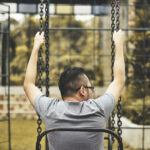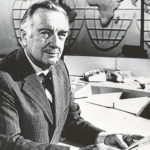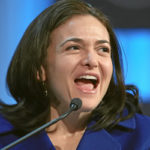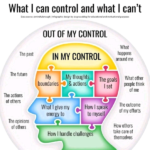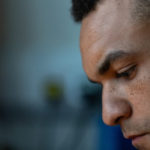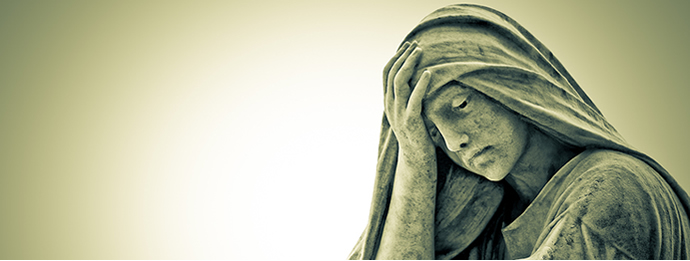
To everything there is a season, and a time and purpose under heaven; a time to weep, and a time to laugh, a time to mourn, and a time to dance.
— Ecclesiastes 3:1
It would take an entire book to explore how religion does or does not influence a person’s life after the death of a loved one. Some individuals maintain their faith uninterrupted; others find their faith shattered (especially an untimely death or long-suffering protracted illness); still others feel a need to redefine their faith. Some have no religious affiliation yet maintain a strong sense of spirituality and, lastly, there are others who experience neither a religious or spiritual connection.
Faith uninterrupted
Religious beliefs not only provide comfort but also a sense of grounding for those who have historically found solace in their faith. Many individuals include God and/or Jesus as close friends with whom they talk on a regular basis.
Research conducted by social psychologist Lee Kirkpatrick and colleagues at the College of William and Mary found that the more personal the bereaved’s relationship with God is, the less lonely they are — regardless of the other forms of support they receive.
Faith abandoned and then reclaimed
When people lose their lifelong faith in God due to the death of a loved one, they seldom realize they are simultaneously grieving the loss of their loved one and the loss of their faith. As they move through this dual crisis and their emotions stabilize, many return to their faith.
Psychotherapist Ashley Bush Davis (formerly Ashley Prend) tells of a Christian woman who lost her faith in God after the death of her husband and was left with nothing but questions. Instead of walking away entirely, she enrolled in a graduate seminary program to find answers. During an Easter Sunday sermon, the university pastor quoted Christ saying, “My God, my God, why have you abandoned me on the cross?” When the widow heard those words, something shifted for her: Christ’s experience of feeling alone and abandoned became a companion experience to hers, which meant she was not really alone at all. Instead, she realized she was being “called to withstand, not understand.”
Faith abandoned and redefined
I recently watched a video of the 2012 Chautauqua conversation between Roger Rosenblatt, an essayist and practicing Jew, and Bishop John Spong, a retired Episcopalian bishop who has written extensively about religious doctrine. Rosenblatt’s daughter had died five years earlier and in the interim he had written two books, Making Toast and Kayak Morning about his experience of moving into his daughter’s home to help raise her small children while engulfed in his own grief.
Rosenblatt realized he had a secret agreement with his God that went something like this: “I’ll be good and you’ll do something for me.” But when asked to explain God to another, his public version was: “The Deity sets life in motion and then says ‘I wish you the best’.”
Rosenblatt admitted that he had lost his faith after his daughter’s death but in “crawling back to it,” he realized that his once-public definition had become his personal one as well. Now he thought God would qualify his earlier statement with, “I weep for the life that you have and that’s all I can do — and possibly that is all I choose to do.”
The bishop said he understood Rosenblatt’s predicament. That is, if you define God as the supernatural being with the power to intervene, then God either becomes malevolent when he doesn’t intervene or impotent because he can’t intervene.
Nonetheless, Spong acknowledged that “our human experience seems to constantly drive us to try to define the word ‘God’ but because human rationale is our only tool, God too often becomes unbelievable.” He went on to say that “people continually ask me to define or explain God, and I wonder why they think that anyone can do that.” Instead, Spong said he felt only qualified to share his experience of the transcendent and his belief that prayer is something one lives, not something one does.
Rabbi David Wolpe traces his experience of being a “proud atheist” to returning to his faith and becoming a rabbi in his book, Why Faith Matters . Shortly after accepting a position in Los Angeles, his wife was diagnosed with cancer at age 31. Four years later, he was scheduled for surgery for a brain lesion that had an 85 percent chance of being cancerous (but thankfully wasn’t). Three years later, he was diagnosed with non-Hodgkin’s lymphoma. When he found himself asking “why me?” he realized that seldom did anyone come to his office and say, “Rabbi, I live in the wealthiest country in the world and have never gone hungry — why me?” or “You know my parents were good kind people and treated me with love — why me?”
“Obviously,” Wolpe observed, “we seem to accept our blessings as our due, while difficulties in life cause us to rail against the injustices of the world.”
As both his and his wife’s cancers went into remission, he came to understand that accepting the world as unfair should not lead to a conviction that there is no God, and that the “essential question of life [is] not why does this happen, which we can never fully know, but how do we create something powerful and lasting from our wounds.”
In the anthology, Loss of the Assumptive World,Kenneth Doka acknowledges that “one of the most significant tasks in grief is for the living partner to redefine his or her religious belief in terms of whether the death was fair.” In his chapter entitled “How Could God?,” Doka quotes C.S. Lewis from his book, A Grief Observed: “Not that I think I am in much danger of ceasing to believe in God. The real danger is of coming to believe such dreadful things about Him.”
Doka notes that when challenged, Lewis did not turn away from God — but accepted that his faith now “included a deeper sense of mystery, (an) “unknowableness of God” that didn’t exist prior.
Above post is an excerpt from Vicki Panagotacos’s recent book “Gaining Traction: Starting Over after the Death of a Life Partner“
Suggested Reading:
| 6 |


